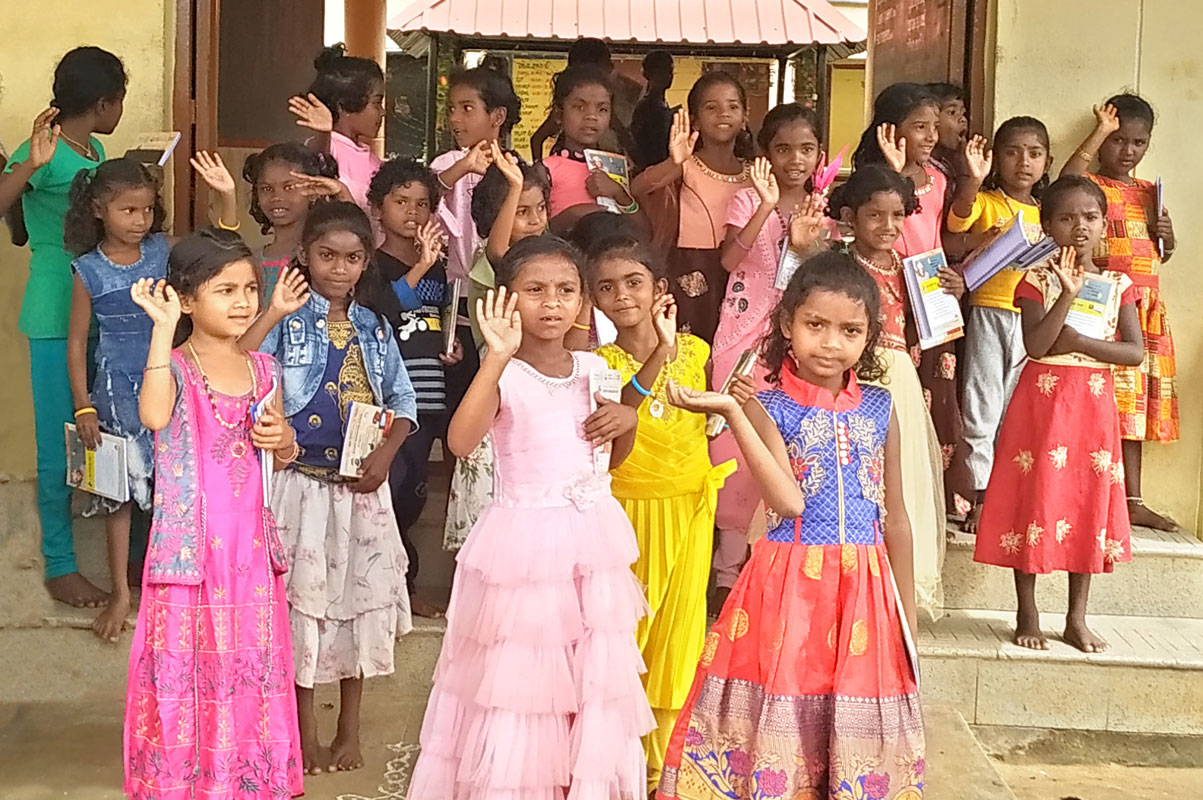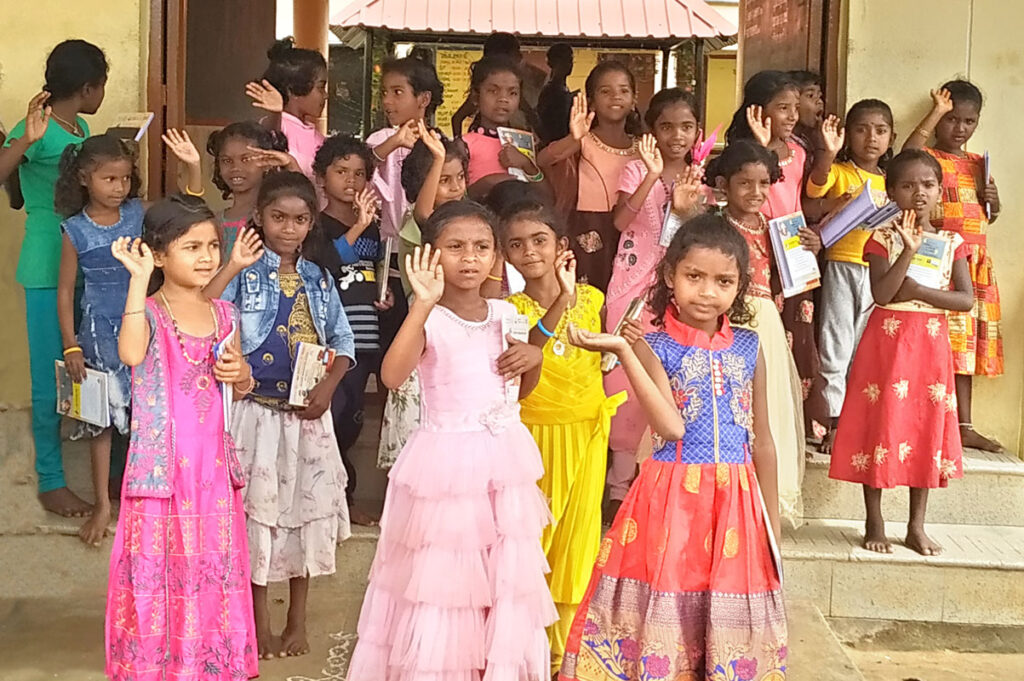
Following the devastation caused to several areas in and around Bengaluru, due to the recent heavy rains, Rotarians from a few clubs in the metro were pained to read about the plight of the tribal residents of a bunch of 28-odd tribal hamlets about 250km from the city.
“We found that these hamlets in H D Kote and Hunsuru taluks were severely affected, resulting in the loss of livelihoods of the villagers and affected their children very badly,” says Kashinath Prabhu, past president of RC Bangalore Lakeside, who is now DLCC, RI District 3190.
The district literacy committee, in collaboration with a few clubs in the district and donors, decided to raise over ₹3.5 lakh for a project they conceived, titled Chaitanya. Through this relief initiative it was decided to distribute educational aids such as notebooks, stationery boxes, etc, along with tarpaulins for the homes of over 1,000 students from 28 of these hamlets.
To identify the beneficiaries, the committee identified local volunteers and NGOs, and also sought their help with the distribution of the education material and tarpaulins to cover the badly damaged and leaking roofs. Prabhu explains that these hamlets are located on the borders of Mysuru in Karnataka and access to them is rather difficult. “We distributed 75 tarpaulins, over 4,500 notebooks and 250 instrument boxes to the students. It’s a long distance so we started from Bengaluru at 4.30am and returned home the next morning only around 2am.”
The most tragic aspect of the schooling and general living conditions of the children here is that since the parents are engaged in farming or work as daily wagers in coffee plantations or paddy fields, work often takes them away from the villages and this work is seasonal. “So when the parents do find work, they go to the site and stay there for seven days or more. In the meanwhile, they cannot leave their children alone and unattended at home, so the entire family goes to the place where work and livelihood are available.”
The result is that even though government has built small schools in these villages, for several days children do not attend school, as they are away from the village with their parents. “While interacting with the locals and NGO representatives, we learnt the sad fact that during season, when work is available for the villagers, entire schools are empty, because the children are not in their homes,” says Gurunagesh, chairman of this project.
High dropout rate
Very often, the result of such long absence from school is that by the time the children reach Class 5, they are not able to cope with their studies, having missed so much of schooling and tend to drop out. This not only pushes up the dropout rate, it often sucks the child into working on the fields along with their parents, augmenting the child labour force.
Says Prabhu, “While planning and executing this project, we found that these children and parents both need counselling sessions, which will make them understand the importance of attending school regularly, so that the child doesn’t have to drop out from school and continues till high school.”
Poverty, lack of adequate employment and paltry income and the resultant frustration drives parents into drinking, further jeopardising the children’s future. In these hamlets, the Rotarians from Rotary Clubs of Rotary Bangalore South (lead club), Rotary Bangalore Koramangala and Rotary Bangalore Palmville, who raised funds for this project, found that the needs of these villagers went much beyond learning aids and tarpaulin.

“When we visited the villages, we found there are no lights and the solar lights that they have been given are rendered useless when it rains continuously and there is no sunlight. Their basic hygiene and sanitation are also terrible; it’s a forest area and the homes have no toilets so there is open defecation. And they do not have access to clean drinking water either, making the inhabitants susceptible to water-related diseases,” says Gurunagesh.
After visiting the villages and interacting with the children, their parents and other locals, Prabhu and other Rotarians are now thinking of expanding the scope of this project to include health, water, hygiene and sanitation, and extend additional support to ensure the children’s continuing education. “Of course we realise it is not a one day or one week job; we have to make it long term and involve the government and others as our partners, as what we are aiming for is giving access to counselling both to the children as well as the parents and bringing about a change in their mindset.”
Government ashram schools
The positive factor is that to promote better learning the government has built a few residential schools, known as ashram schools, in which about 200–300 students stay, and the Rotarians feel that more such residential schools should be built so that the children don’t have to miss their education when the parents leave the village for work. They are confident of doing advocacy with the government for more such schools — right now there is only one such school in each taluk — with the promise that Rotarians will give a helping hand in these schools through educational aids, e-learning facilities and other support systems.
“We could see that the children staying in an ashram school look healthier, as they get proper food, and are able to get schooling for four months after which they go home for a week or so,”
says Prabhu.
The Rotarians who joined this relief initiative included A K Sugunan, Roshan Jacob, Soumya Nair, Srinath Gupta, S Ramakrishna, Anil Dsouza and Pandu Kumar. Now hoping to take up the possibilities of helping these tribals much more, he says this relief initiative “gave us an immense sense of fulfilment, satisfaction and a resolve to do more in this well-deserving geography. It not only brought us close to ground reality of the situation in these tribal colonies, but also gave us more insight on other potential service opportunities that we can take up such as shelter homes, health and hygiene, counselling sessions, etc.”








